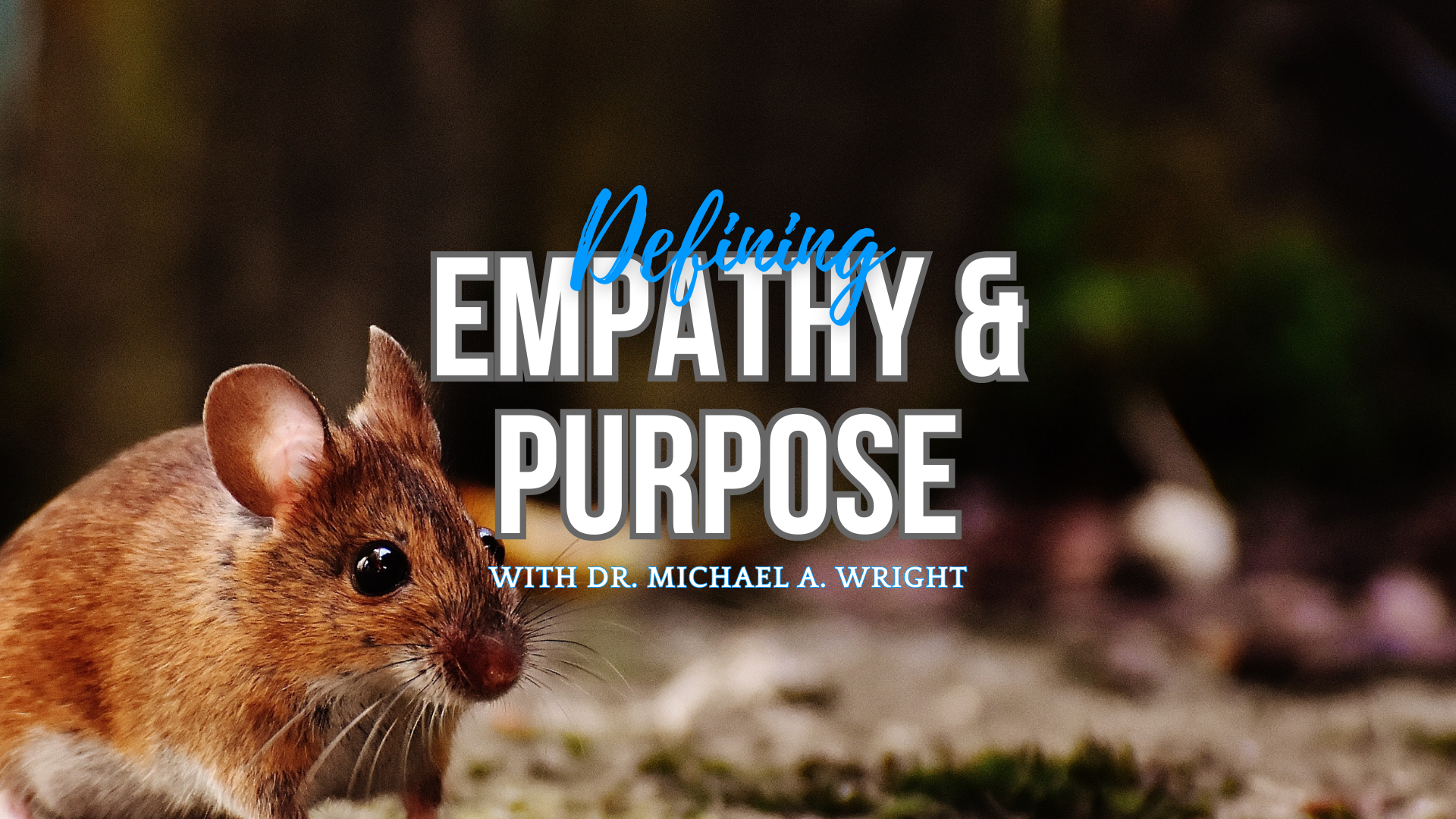Defining Empathy & Purpose in Support of the Common Good

The “Universe 25” experiment conducted by John Calhoun with mice colonies sheds light on crucial aspects of human behavior and social dynamics. As I reflect on the findings, I believe the two core issues observed in the experiment are the loss of empathy and the loss of purpose. These issues are often manifested in insecure, low-intellect ways, hindering our ability to connect with others and find fulfillment in our own lives.
Empathy Redefinition
Empathy, defined as the capacity to understand and share the feelings of others, is essential for fostering meaningful connections and promoting a harmonious society. It allows us to put ourselves in someone else’s shoes and truly comprehend their experiences. However, in the experiment, as the mouse population grew, empathy appeared to diminish. Individuals became more focused on their own survival and territory, leading to aggression and isolation.
This loss of empathy is a critical issue we face in today’s society. It results in a lack of understanding and compassion, leading to divisions and conflicts among individuals and communities. To address this, we must actively cultivate empathy by making a genuine effort to understand and appreciate the perspectives and experiences of others. By doing so, we can bridge the gaps between us, nurture meaningful connections, and build a more empathetic society.
The Purpose Need
Another significant observation from the experiment was the loss of purpose. Calhoun defined purpose in terms of procreation, which is a fundamental drive present in all living organisms. However, I believe purpose extends beyond mere biological reproduction. Purpose is about being the best version of ourselves as human beings and consistently showing up authentically.
In our pursuit of purpose, we often limit ourselves by comparing our achievements and contributions to societal expectations or external validation. This can lead to feelings of inadequacy and a sense of not being enough. However, I want to emphasize that each one of us is intrinsically worthy and deserving of the benefits and contributions we make to society. We must reject the notion that our value is solely determined by external standards and embrace the belief that we are enough, just as we are.
By living authentically and expressing our humanity unapologetically, we not only cultivate a sense of purpose within ourselves but also inspire others to do the same. We become beacons of light, guiding others towards self-acceptance and the pursuit of their own purpose. It is through this authenticity and self-acceptance that we can discover a greater sense of fulfillment and create positive change in the world.
Supporting Utopia
It is crucial to recognize that we could thrive with unlimited resources and a so-called “utopian” society. Suffering is not the only purpose capable of keeping us preoccupied. Our purpose transcends the elimination of suffering; it lies in embracing our unique qualities, talents, and contributions to make a difference in the world. Even in a world where basic subsistence is assured, higher experiences will always be desired. Greater exploration, deeper discovery, finer details present themselves to those with the time and freedom to look. Utopia does not breed anarchy; rather, it is through embracing our purpose and living authentically that we can build a society grounded in empathy, reciprocity, and cooperation.
In conclusion, the “Universe 25” experiment offers valuable insights into the loss of empathy and purpose within social organisms. As individuals, we must work towards fostering empathy, understanding, and compassion for others. Additionally, we must recognize our own worthiness and embrace our purpose, showing up authentically and unapologetically. Only by doing so can we transcend suffering, create a meaningful life, and contribute positively to society. Remember, suffering is not a purpose – you are purpose.
